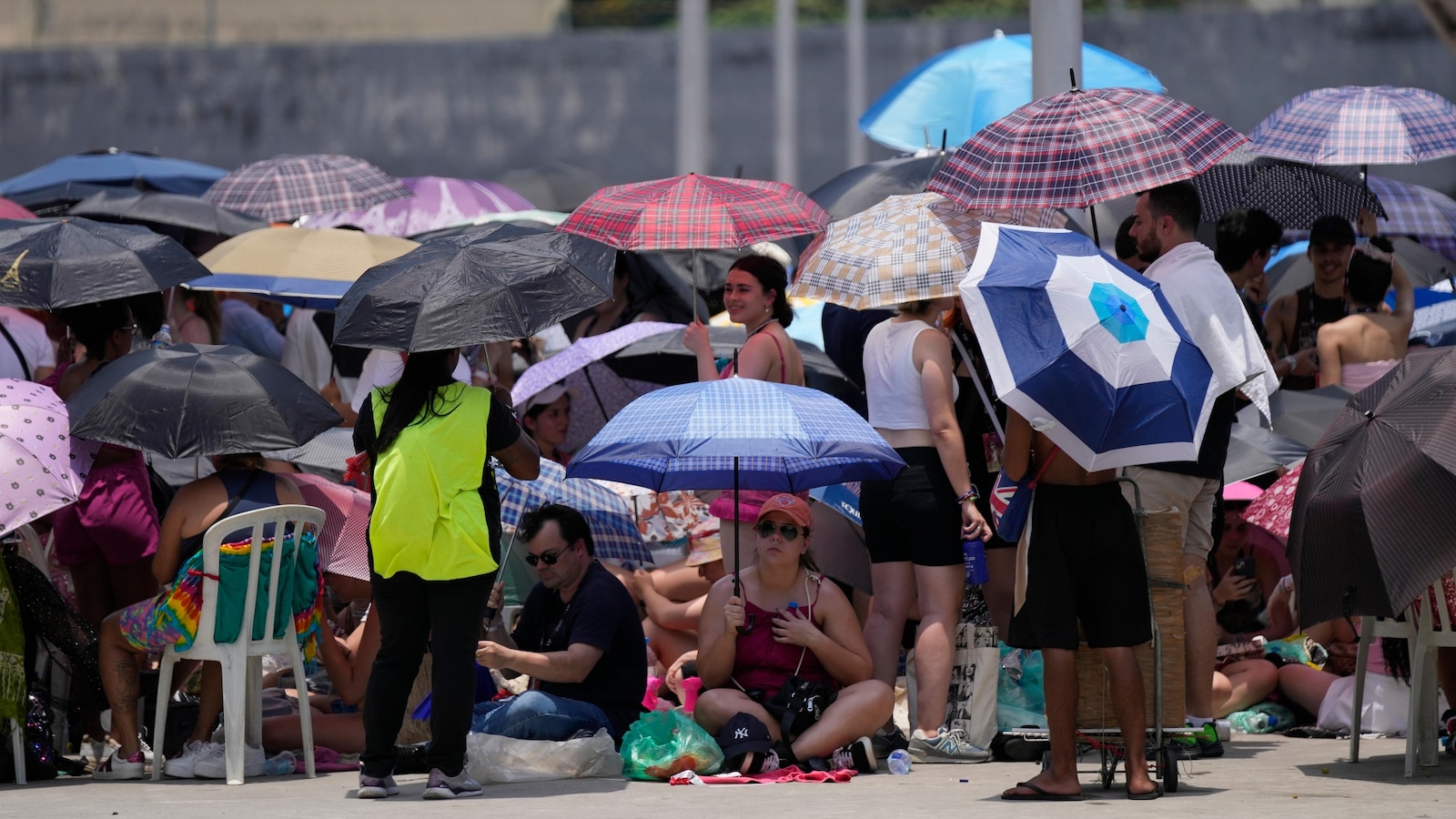Brazilian climatologist Núbia Beray Armond has long been advocating for an extreme heat plan with a focus on water distribution in Rio de Janeiro. Initially, there was minimal interest in her warnings until a tragic incident at a concert changed everything.
A scorching heat wave engulfed southeast Brazil on the day of Taylor Swift’s concert last November, just before the onset of summer in the Southern Hemisphere. Thousands of devoted fans endured hours of waiting under the blazing sun, with some seeking shelter under umbrellas. Inside the venue, a group of dehydrated fans caught Swift’s attention, prompting her to pause the show and ensure they were provided with water.
Tragically, not everyone was as fortunate. Ana Clara Benevides, a 23-year-old concert attendee, suffered from heat exposure leading to a cardiorespiratory arrest during the event, resulting in her untimely death.
The incident sparked widespread outrage, with many blaming the organizers for failing to adequately supply water to the attendees. In response, Brazil’s justice minister deemed the death unacceptable and introduced a regulation mandating that organizers of large events during heat waves must ensure water availability for the participants.
This tragedy served as a catalyst for legislative action, highlighting the importance of water accessibility as a critical public health concern in an increasingly hotter climate. Rio de Janeiro has emerged as a frontrunner in this initiative, with numerous bills addressing water distribution making their way through various levels of government.
Niteroi, a city in Rio’s metropolitan area, took the lead by passing a municipal ordinance guaranteeing water provision at major events. This shift reflects a growing recognition by Brazilian authorities of the significance of ensuring water access in the face of escalating temperatures.
The relentless summer heat in Brazil has been relentless, with multiple heat waves hitting the country in 2023, including three since the beginning of the year. The heat index, a measure of how temperature and humidity combine to affect the human body, soared to a record-breaking 59.3 degrees Celsius (138 Fahrenheit) on the day of Swift’s concert. Subsequent heat waves have surpassed this record, with the heat index reaching 62.3 degrees Celsius (144 Fahrenheit) during a recent spike in temperatures.
While many sought relief at beaches like Copacabana and Ipanema, not everyone could find respite. Eduardo Alves de Castro, a 43-year-old resident, expressed concerns about the escalating temperatures and the potential long-term impacts on the environment and vulnerable populations.
In marginalized communities such as favelas, where residents often struggle to afford constant air conditioning, access to water becomes a critical issue during heat waves. The privatization of water services in 2021 led to the installation of water meters, affecting those who previously had free access to water.
The situation in favelas underscores a global trend where water shortages disproportionately impact marginalized communities as temperatures rise worldwide. Organizations like the Treat Brazil Institute advocate for comprehensive water distribution plans and sustainable management practices to address these challenges.
As Rio prepares to observe World Water Day, discussions around water access have gained momentum, with residents sharing their struggles with water scarcity. In neighborhoods like Jardim Gramacho, intermittent water supply poses significant challenges, prompting residents like Fatima Monteiro to resort to alternative sources like makeshift wells to meet their needs.
Efforts to address water scarcity include initiatives like providing saline solutions for dehydration during heat waves and distributing water at public events like Carnival. However, there have been instances of shortcomings, such as restrictions on bringing water bottles into stadiums, prompting scrutiny from authorities.
While Rio has taken steps like installing free water dispensers, there is room for improvement in ensuring widespread access to water, especially during extreme heat events. The journey towards enacting effective legislation to mandate water distribution remains ongoing, with the hope of preventing future health crises due to water scarcity.
